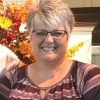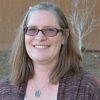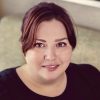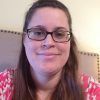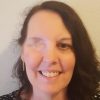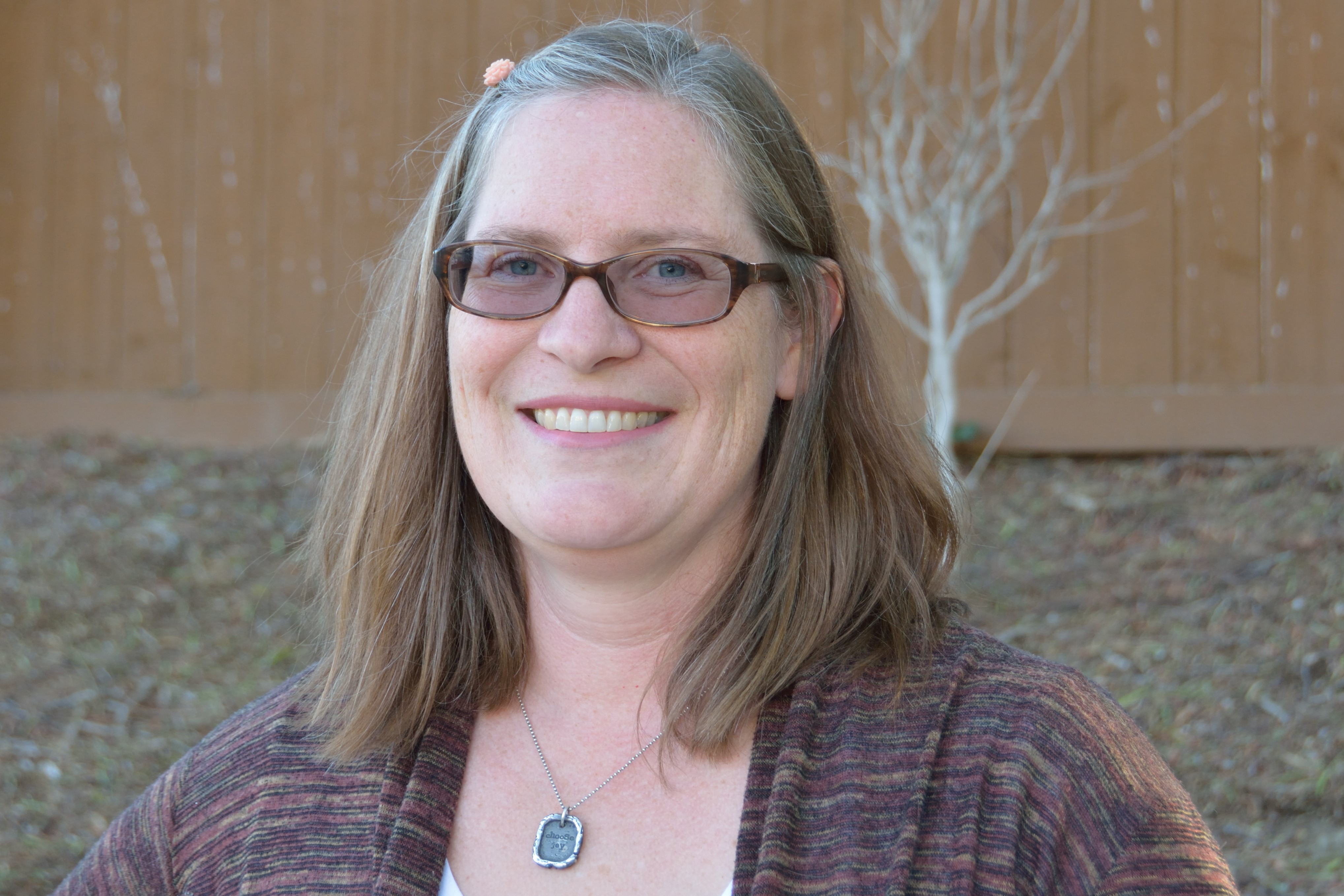
Conversations:
Joy, thanks for talking to CONVERSATIONS today. Tells us about Alport Syndrome. Few people know what that is, never mind have heard of it.
Joy Toal – Alport Syndrome Foundation:
Thank you for including me, Doug. Alport syndrome is a rare genetically inherited disease that affects the ears, eyes and most importantly the kidneys. In general, there are three types of Alport syndrome, XLAS, ADAS, and ARAS. Each one has a different inheritance pattern and pattern of progression.
Conversations:
Interesting. At what point are people diagnosed with it? How does it manifest itself? Are there genetic tests for it?
Joy Toal – Alport Syndrome Foundation:
Many patients are out there who have yet to be diagnosed, unfortunately. It is a rare disease that until recently wasn’t able to be genetically tested. About 10 years ago in the USA we became able to test for ADAS and ARAS, before that time we had only two labs in the entire US that could test for XLAS. I’ve been told families used to ship their blood samples to Germany at great personal expense to get genetic testing. Thankfully, much of that has changed and with NGS testing, the cost to genetically test a patient/family has come down significantly and gets approved more readily by insurance carriers. Previous generations of patients might have been diagnosed from a very astute nephrologist and renal biopsy or through participation in some of the groundbreaking research to identify families affected with Alport syndrome and create a patient registry. In my own family it was diagnosed several generations ago as “Bright’s disease”, then as understanding expanded my grandmother and uncle were diagnosed as having “Thin Basement Membrane Nephritis”. It wasn’t until my sister was in ICU that I obtained my renal biopsy and was diagnosed as having thin basement membrane nephritis indicative but inconclusive for Alport syndrome. Thankfully, my genetic test (which at the time was only for XLAS) found our familial mutation and we received a confirmed diagnosis of XLAS. So, the short version answer is that it can take generations upon generations to get to a final and confirmed diagnosis for many families with Alport syndrome (AS).
In terms of manifestation, the first renal symptom is hematuria, blood in the urine. As the disease progresses, you develop microalbuminuria, a small protein in the urine, and eventually proteinuria. If untreated and/or as the disease continues to progress, the experts believe that proteinuria leads to the formation of scar tissue in the kidneys and eventually ESRD, end state renal disease also known commonly as renal failure.
For the ears, we experience progressive sensorineural hearing loss. Thankfully, not all family mutations include the hearing loss component. But for those of us who do experience hearing loss, it can be very isolating. The only treatment for hearing loss is hearing aids. AS patients are great candidates for hearing aids and generally benefit from properly fit aids, most especially if they don’t wait too long to obtain them.
For the eyes, the conditions that affect vision are very rare. But for those families with those rare conditions it can lead to blindness or loss of vision (ex. macular holes) and/or can be a condition that causes pain (ex: corneal erosions). The most common ocular finding is dot-and-speck retinopathy, which can be used diagnostically in adults and does not affect the patient’s vision. the Dot-And-Fleck Retinopathy as I understand it is found in most AS patients, but as with the ears and the kidneys is also a progressive finding meaning you aren’t as likely to see it in young patients.
Conversations:
Thanks for this impressive detail, Joy. Let me ask you – in laymen’s terms . . . can you articulate the relationship between a kidney disease and hearing and vision loss? Many people . . . might think, “how does someone lose their vision from a kidney related disease” . . . although we, of course, know that can be true for advance diabetes . . .
Joy Toal – Alport Syndrome Foundation:
Oh yes, of course! So AS affects the Collagen network Col 4A3, Col 4A4 and Col 4A5 depending on your family’s mutation(s). These collagen are used to form the alpha 3,4,5 and alpha 5,5,6 protein chains which are then replicated during fetal development to form the basement membrane. This basement membrane with this particular protein mapping is found in three locations of the body – namely, the eyes, ears and kidneys. It is not found in other areas of the body, which many people might presume when they hear the term collagen.
Conversations:
Fascinating. I infer from your summary above, that there are thousands / tens of thousands of folks with Alport Syndrome (AS) that are walking around and don’t know it. I think of those newspapers scenarios like in the New York Times where they introduce some disease that no one can diagnose and 5 specialists later . . .can you give CONVERSATIONS a greatest hits of . . . ok if you have 1) blood in the urine; 2) hearing loss, etc. you MIGHT have Alport Syndrome . . . Also, how aware are GPs and Ophthalmologists about this disease? Are they widely educated about the possibility of an AS diagnosis?
Joy Toal – Alport Syndrome Foundation:
Blood and or protein in the urine is often what will trigger testing for a family, but since most adults are not getting urine tested, often families are being diagnosed when a child is receiving follow-up care from a well check at their pediatrician’s office. Thankfully, any good pediatrician should know that blood in the urine is not a normal finding and should do follow up with the family or refer them to another doctor, either a pediatric nephrologist or a geneticist if they have some family history. As I mentioned, it can be very challenging and take generations to diagnose properly. There are many families who are never diagnosed (as my uncle was never diagnosed) despite all the obvious indications for AS. So a clear and full diagnosis is very dependent on the patient’s ability to self-advocate for more information and by some measure just sheer luck of who they have for a physician. I would tend to say that most GP’s are totally unaware of AS. Many ophthalmologists will have heard of it, but that requires the patient actually having a need to see an ophthalmologist in order to detect the Dot-And-Fleck Retinopathy and they may not know why they are seeing that indicator in a patient. In my opinion and my family’s experience, it is very difficult to find a doctor who is aware of AS and interested in finding out for certain. Our family was very fortunate for what I refer to as my Angel Nephrologist, a quirky little old lady who had to be in her late 80’s and loved following research. She was the first in my family to put together the history and suggest Alport syndrome. She was also the one who convinced me to do the renal biopsy so my sister could be listed for a transplant (she was in ICU in ESRD at the time).
Conversations:
Joy, tell CONVERSATIONS about the Alport Syndrome Foundation. It seems like ASF is the only AS specific foundation in the world. What is your role? How did you land there?
Joy Toal – Alport Syndrome Foundation:
The Alport Syndrome Foundation has been around since 2007 and started with two very passionate fellow patients. There are actually other AS organizations worldwide, but I believe ASF is the largest organization. The UK and Australia are also fairly well established and many other countries have some type of group that is advocating in their country and/or supporting ASF in their mission. At ASF, we turn away NO ONE. We have a very large international following and pride ourselves on striving to form an international community for AS patients. I’ve been involved formally since 2009, which is when I started the ASF Facebook page. I ran the main page for about 5? years before starting our closed support group page – Alport Syndrome Foundation Support Group. I’ve been the moderator and creator of the support group since October 2014 and after the first few months I needed to stop running the main ASF page, which is public, so that I could focus my efforts on helping other families up the learning curve of AS.
Conversations:
And that ASF Support Group page is a Facebook group? Do you have a link for it so people can find it? How successful do you think that effort is? Some groups seem to be a wealth of information while others, it’s the same 10 people opining all day and everyone loses interest. How do you keep it fresh? How do you keep people’s attention with the group?
Also, can you provide a link to the Alport Syndrome Foundation (ASF)?
Joy Toal – Alport Syndrome Foundation:
The link is https://www.facebook.com/groups/alportsyndromefoundation/about/. We have about 2,000 member currently and a very steady stream of both new members and conversation . There are definitely a lot more than 10 people who frequent the conversations and it is a very close nit community of supportive folks. Like any community on-line, you will not always agree on everything, but that is where myself and my cohorts come into focus. We are very active at moderating discussion and focused on assuring that information shared is ACCURATE. That’s one word is actually that caused me to start the group page, accuracy! There were several splinter pages started my well meaning patients without ties to medical professionals and the ‘information’ shared was often not accurate or could be grossly misleading. I saw a true need to find a safe place for patients to ask questions and receive solid and accurate information about their AS. Any question myself or my cohort cannot answer is directed to one of our medical advisory physicians for insight and support. The ASF website is www.alportsyndrome.org.
Conversations:
Joy, thanks so much for sharing today with CONVERSATIONS. Your very expansive detail is extremely welcomed.
Joy Toal – Alport Syndrome Foundation:
Thank you Doug, for including me and our little rare disease. Please let those who think they might have AS know that there is treatment to help delay ESRD and women should not be told they are ‘carriers’. I’m more than willing to help any family who is striving to learn what we know now about AS.



